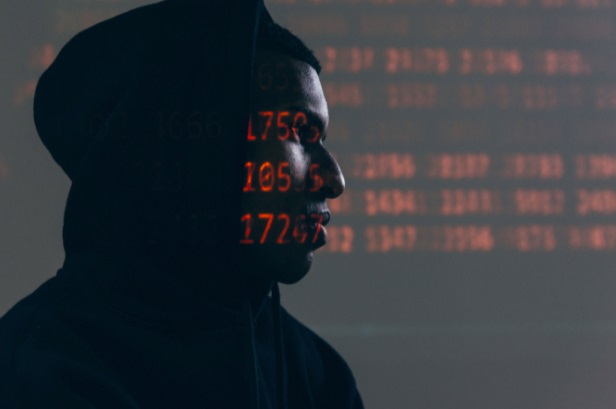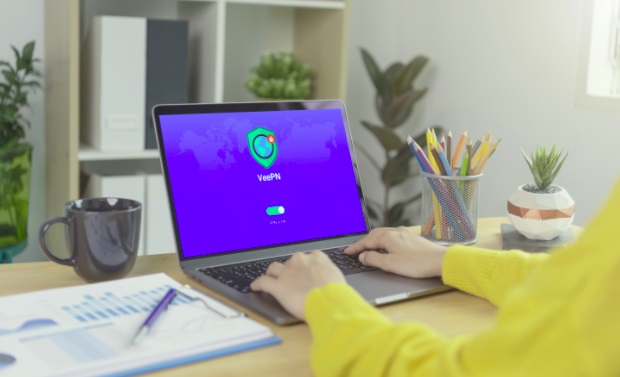10 Reasons Why Everybody Need to Use VPN in 2021
What is VPN?
VPN (Virtual Private Network) is a secure encrypted user connection to the network with which it can bypass local restrictions and maintain confidentiality. VPN encrypts your data via hiding IP addresses by routing your network traffic. This covers your online identity even on public Wi-Fi networks, allowing you to browse the internet safely, securely, and anonymously.

What are the main reasons for using a VPN?
So, why should one use a VPN at home? We've gone over the fundamentals and here are some of the reasons why you need to use a VPN and how it can help you in everyday life.
Public Wi-Fi security
Public Wi-Fi is convenient, but it compromises security. Someone may be watching your online behavior when you're answering emails at a neighborhood coffee shop or reading through social media at the airport. This is probably the number one reason for getting a VPN.
While using other networks, a VPN safeguards your data by disguising your browser history, financial information, account passwords, and other sensitive information from malicious internet strangers.
Your Internet Service Provider's Data Privacy
When you use your home Wi-Fi rather than a public connection, you are less likely to be abused by strangers.
Your ISP (internet service provider), which might be Comcast, Spectrum, Verizon, or any company for which you pay a monthly subscription for Wi-Fi, has access to all of your internet data. Your Internet service provider may know when, where, and how you surf.
However, if you prefer the 'private' browsing mode, someone can still gather the data and sold it. They can sell it to advertisers, which can be harmful in the wrong hands in the event of a data breach. With the help of a VPN, you may hide your IP address from your ISP.
Privacy Concerns with the Apps and Services You Use
Well, why should you use a VPN? Your Internet service provider isn't the only potential risk you've brought into your home. Unfortunately, several of our favorite apps and online services, including Facebook, have been chastised for how they handle user data.
Apps and websites will be unable to attribute your actions to your computer's IP address if you use a VPN. It also can restrict the collection of your location and browsing history.
Your Government's Data Privacy
Although many ISPs, applications, and internet data hubs claim they don't sell your browser data to governments, the information nonetheless ends up in their hands—even in the United States.
Americans have been more conscious of the various ways the government surveils and acquires their data since Edward Snowden first revealed in 2013 that Verizon had been selling users' internet and phone data to the NSA. Following the Snowden revelations and the uproar that ensued, much legislation was passed to limit government spying.
If you are still worried that somebody may get you private information, consider using a double VPN. What is a double VPN? A dual VPN is a chain of two sequentially located servers associated with a VPN connection. The Internet access, in this case, is as follows: the user is connected to the first server, it redirects traffic to the second server, and the access to the network is already available from it.
A VPN is a wise investment in protecting your data if you are concerned about government overreach.
Anywhere, Anytime Access to Any Content
While Hulu may frown on you using a VPN to watch the latest Criminal Minds episode in a region where the content isn't available, VPN use isn't illegal (in the United States and most other countries) and can be useful workaround for content restrictions.
VPNs spoof your location and make it appear as if you're browsing from a different area. That means you can watch Criminal Minds even if it isn't available in your area.
Working from afar requires extra caution.
One of the major benefits of a VPN can encrypt the data. Encryption, or the process of converting data into a coded format that obscures its meaning, allows you to protect sensitive information.
If you're considering using a VPN for your business, one advantage is that employees can connect to your network and look at critical documents on their own devices when they're away from the office.

Simple to Use
While we'd all prefer to have more protection in our lives, some security gadgets and processes appear to be more trouble than they're worth for folks who aren't tech-savvy. VPNs, on the other hand, are simple to use. Several vendors have designed intuitive and user-friendly interfaces that allow non-techies to install and utilize their products.
Adaptable to a Wide Range of Smart Devices
While many of us may begin by using a VPN on a borrowed laptop, many VPN services also secure other smart devices including phones, tablets, and desktop PCs. Although each VPN provider may have slightly different protection plans and capacities for protecting different devices, many VPN companies offer plans that keep you safe on many devices.
Smart Investing
A VPN, with its location spoofing features, can help you save money if you are prepared to do some research. Many businesses, such as subscription services and airlines, charge varying fees for the same perks or items. You can save a lot of money if you modify the appearance of your location to one where services are offered at a lower cost.
Cut Support Expenses
You can save a lot of money on support services if you choose a VPN solution that combines cloud computing architecture. In an on-site setup, for example, internal IT staff is normally responsible for the operation and upkeep of the in-house server. This could take hours to assess how well the server is running, whether all employees are achieving optimal throughput, and whether it is under hacker or virus assault.
What are the disadvantages of VPN?
Of course, even with all the advantages mentioned, you still might be wondering whether or you need it. However, take a look at the disadvantages before you make a decision.
While a VPN is an excellent tool for separating your location (and, in many ways, yourself) from your data, it does not hide everything about you. If you take a Facebook quiz or like a post on Instagram while connected to a VPN, the app you're using can still utilize your actions to personalize in-app adverts and content to you. Even if they don't know where you're browsing from, they'll be able to see what you're doing on their apps.
Similarly, if you have cookies enabled on your computer, organizations can track you both while you are on their site and after you leave.
A VPN by itself does not obfuscate all of your data. For complete security, combine VPN protection with Tor, an open-source application that allows you to browse the web anonymously, and additional security measures.
VPNs aren't without flaws. They are vulnerable to malware and cyber-attacks, just like any other computer application. A VPN's security features are compromised if it becomes corrupted.
Using a free VPN service increases the risk of assaults and security breaches. To recoup their operating costs, 'free' VPN services may sell user data or display malware-infected advertisements. Investing in a premium VPN is your best bet if you want to increase your data privacy.
Does everybody need a VPN?
Well, we can't pin a straightforward answer to this question because everyone has a different opinion when it comes to VPNs. Hence, if you need a VPN is what you should be asking instead. Now, that we've covered the basics of what is a double VPN and why you need it, use the information we've provided to determine if you need one!
You should read it
- Microsoft launches Office 2021 for Windows and Mac
- WWDC 2021: iOS 15, macOS 12 and more to look forward to
- Adobe After Effects 2021.22.0 - download Adobe After Effects 2021.22.0 here
- Rules of Survival: What's HOT in the content of Update ROS 6/1/2021?
- Acer Nitro 5 (2021) Detailed Review: A completely new design
- MacBook Pro 2021 and the series of upgrades are worth the wait
 Detecting a vulnerability that makes 3,000 companies using Microsoft Azure vulnerable to hackers reading data over the past 2 years
Detecting a vulnerability that makes 3,000 companies using Microsoft Azure vulnerable to hackers reading data over the past 2 years How to stay safe while playing online games
How to stay safe while playing online games Hundreds of thousands of Wifi manufactured from 2015 and earlier were attacked
Hundreds of thousands of Wifi manufactured from 2015 and earlier were attacked You can gain admin rights of Windows 10 just by plugging in a Razer mouse
You can gain admin rights of Windows 10 just by plugging in a Razer mouse This critical vulnerability turns home devices into attack tools
This critical vulnerability turns home devices into attack tools Windows 365 accounts and passwords can be stolen easily
Windows 365 accounts and passwords can be stolen easily